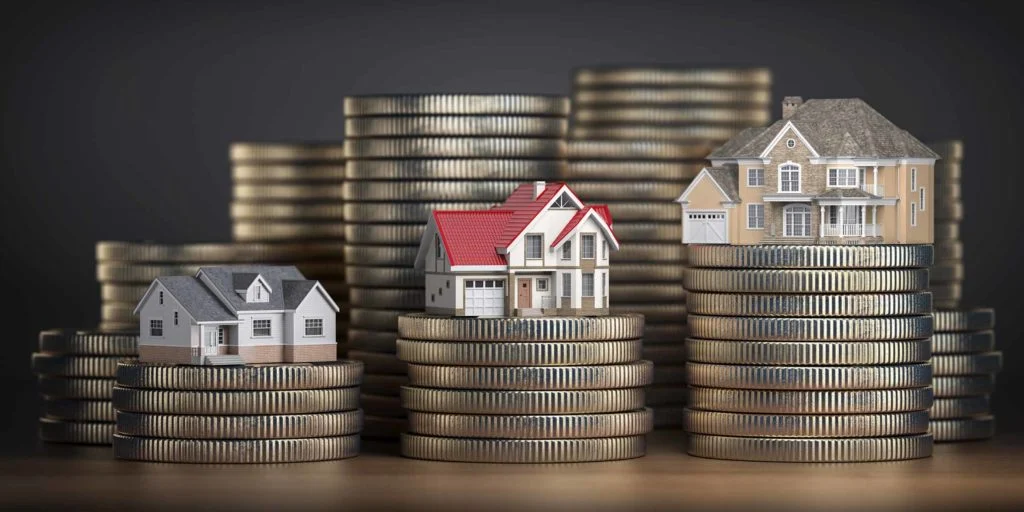Table of Contents
ToggleDo you want to know details about buying a house in Egypt?
Buying a home is one of the most significant financial decisions a person can make. In Egypt, as real estate prices continue to rise and urban development spreads across new cities like New Administrative Capital, Sheikh Zayed, and New Alamein, many Egyptians and expatriates are turning to mortgage financing to make homeownership possible. Understanding the mortgage landscape in Egypt is crucial to making informed decisions. This article explores the different mortgage options available in Egypt, how they work, and what you need to consider before applying for one.
What Is a Mortgage?
A mortgage is a loan secured by real estate property, typically used to purchase a home. The borrower agrees to repay the loan in monthly installments over a fixed term, usually 10 to 30 years. If the borrower defaults, the lender has the right to seize the property to recover the loan.
In Egypt, mortgage financing is regulated by the Egyptian Financial Regulatory Authority (FRA), and several banks and non-bank financial institutions offer mortgage products.
Who Can Apply for a Mortgage in Egypt?
In Egypt, both Egyptian citizens and foreign nationals can apply for mortgages, although some restrictions may apply to foreigners, such as the type of property or location that can be financed. Typically, borrowers must:
-
Be at least 21 years old.
-
Have a stable income source (salaried, self-employed, or business owner).
-
Provide documented proof of income.
-
Maintain a good credit history (if applicable).
The property being financed must also meet specific conditions, including legal registration and approval from the lender’s valuation department.
Types of Mortgage Options in Egypt
There are several types of mortgage products available in Egypt. The best option depends on your income level, financial stability, and long-term goals.
Fixed-Rate Mortgages
In a fixed-rate mortgage, the interest rate remains the same for the duration of the loan. This option offers predictability and stability in your monthly payments.
-
Pros: Easier budgeting, protection from interest rate hikes.
-
Cons: Usually starts with a higher interest rate compared to adjustable options.
Variable or Adjustable-Rate Mortgages (ARMs)
Here, the interest rate can change over time based on market conditions or a predetermined schedule.
-
Pros: Lower initial interest rates.
-
Cons: Risk of rate increases in the future, which could raise monthly payments.
Islamic (Sharia-Compliant) Mortgages
Offered by some banks in Egypt, Islamic mortgages operate under the principles of Islamic finance, meaning no interest (riba) is charged. Instead, banks use structures like Murabaha (cost-plus financing) or Ijara (leasing).
-
Pros: Ethical financing option for practicing Muslims.
-
Cons: May come with higher administrative fees or limited availability.
Government-Backed Mortgage Programs
The Egyptian government offers subsidized mortgage programs aimed at middle- and low-income families. These programs usually come with:
-
Lower interest rates (as low as 3%–8%).
-
Long repayment periods (up to 30 years).
-
Income-based eligibility requirements.
The most popular is the Social Housing and Mortgage Finance Fund (SHMFF) initiative, which promotes affordable housing for Egyptian citizens.
Key Mortgage Providers in Egypt
Many banks and financial institutions offer mortgage loans in Egypt. Below are some of the most prominent:
Banque Misr
Offers mortgages with repayment periods of up to 20 years, covering up to 80% of the property value.
National Bank of Egypt (NBE)
Provides both conventional and subsidized mortgage programs, including financing for new housing projects.
CIB (Commercial International Bank)
Known for competitive interest rates and customized loan solutions, particularly for salaried individuals.
Housing and Development Bank (HDB)
A primary partner in the government’s affordable housing initiatives.
Al Ahli Bank of Kuwait (ABK), QNB, and Alex Bank
These banks provide a range of products tailored to high-net-worth individuals and real estate investors.
Required Documents
When applying for a mortgage, banks usually ask for:
-
National ID or passport.
-
Proof of income (salary slips, tax returns, or business records).
-
Bank statements for the past 6–12 months.
-
Employment verification letter (for salaried individuals).
-
Property documents (ownership, valuation, building permit).
The specific requirements can vary by bank and whether the property is new, under construction, or resold.
How Much Can You Borrow?
Typically, banks in Egypt will finance up to 70%–85% of the property’s value, depending on:
-
Your income level.
-
Credit profile.
-
Type and location of the property.
The remaining 15%–30% must be paid upfront as a down payment. Monthly installments usually should not exceed 35%–40% of your monthly income, ensuring borrowers don’t overextend themselves financially.
Costs Involved
Apart from the property price and loan interest, borrowers should consider:
-
Down payment
-
Interest payments
-
Loan processing fees
-
Property valuation fees
-
Insurance (life and property)
-
Registration and notary fees
These additional costs can add 3%–7% to the overall price, so it’s essential to budget accordingly.
Tips Before Applying
-
Check Your Credit History: Even though Egypt doesn’t have a fully developed credit scoring system like Western countries, banks may still assess your borrowing habits.
-
Compare Offers: Shop around different banks and lenders to find the best terms and interest rates.
-
Negotiate the Terms: Especially with large down payments, banks may be willing to offer better rates.
-
Read the Fine Print: Understand prepayment penalties, late fees, and interest calculation methods.
-
Consider Future Changes: Ensure the loan remains affordable even if interest rates or your financial situation changes.
Final Thoughts
With growing demand for housing, mortgage financing in Egypt has become more accessible and diverse than ever before. Whether you’re buying your first home, investing in real estate, or seeking a Sharia-compliant solution, Egypt’s mortgage market offers a variety of options to fit your needs. However, choosing the right mortgage involves more than just securing a loan — it requires careful planning, financial discipline, and a clear understanding of your obligations.
By doing your homework and consulting with trusted financial advisors or real estate professionals, you can navigate the Egyptian mortgage landscape confidently and secure a home that suits your budget and lifestyle.
Frequently Asked Questions
What is a mortgage, and how does it work in Egypt?
A mortgage is a loan secured by a property, typically used to finance a home purchase. In Egypt, banks and financial institutions offer mortgage loans where the property acts as collateral. The borrower makes monthly payments over a period—usually 10 to 30 years—that include the loan principal and interest. If the borrower defaults, the lender can take legal action to sell the property and recover the outstanding debt. Mortgage regulations are overseen by the Financial Regulatory Authority (FRA), and financing is available for Egyptians and some foreigners under specific conditions.
What types of mortgages are available in Egypt?
Egypt offers several types of mortgage products:
-
Fixed-Rate Mortgages: The interest rate stays constant throughout the loan term.
-
Adjustable-Rate Mortgages (ARMs): The interest rate can fluctuate based on market conditions.
-
Islamic Mortgages: Sharia-compliant products like Murabaha (cost-plus) or Ijara (leasing).
-
Government-Subsidized Mortgages: Offered for low- and middle-income citizens through programs like the Social Housing and Mortgage Finance Fund (SHMFF), often with reduced interest rates and longer repayment terms.
Each type has specific benefits and risks based on income level, financial planning, and religious or ethical preferences.
Who is eligible to apply for a mortgage in Egypt?
Eligibility typically requires the following:
-
Minimum age of 21 years.
-
A stable, verifiable income (salaried, self-employed, or business owner).
-
A good financial standing or credit history.
-
Egyptian nationality or legal foreign residency (subject to property type/location restrictions).
-
The property must be legally registered and approved by the bank.
Banks may have their own specific criteria, such as a minimum income threshold and a requirement for employment history or business duration.
How much can I borrow from a bank for a mortgage in Egypt?
Most banks finance 70% to 85% of the property value, depending on your income level, the property type, and bank policies. For example:
-
If the property is worth EGP 2 million, you may be eligible for a loan of up to EGP 1.6–1.7 million.
-
You must cover the remaining 15%–30% as a down payment.
In addition, banks generally cap the monthly installment at 35%–40% of your monthly income to ensure loan affordability.
What is the difference between conventional and Islamic mortgages in Egypt?
-
Conventional Mortgages charge interest on the loaned amount and are repaid over a set term.
-
Islamic Mortgages, on the other hand, do not involve interest. Instead, the bank either:
-
Buys the property and sells it to the buyer at a profit (Murabaha), or
-
Buys the property and leases it to the buyer with an option to purchase at the end (Ijara).
-
Islamic products comply with Sharia law, making them suitable for religiously observant clients. They may have slightly different fee structures or approval requirements.
